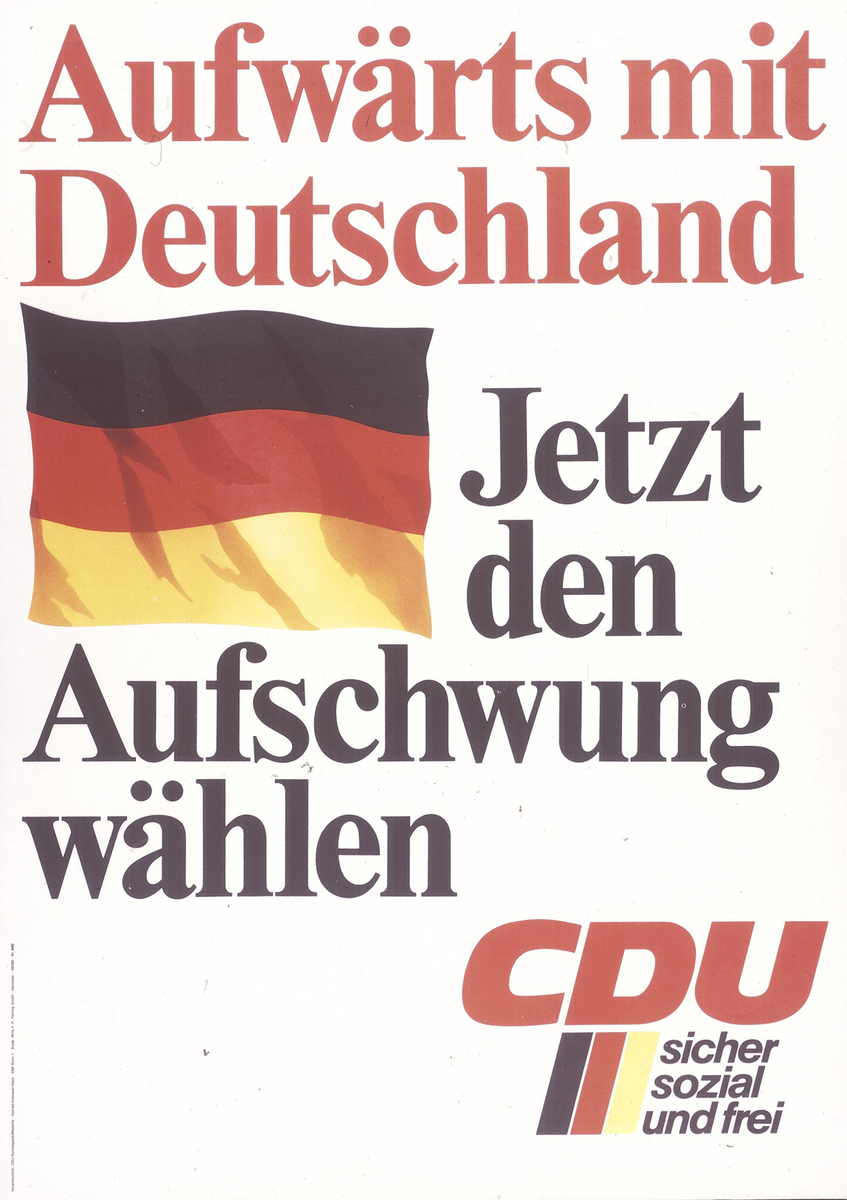Source

Source: CDU Poster for Bundestag Elections: “Upwards with Germany,” 1983. Artist unknown.
The FDP had entered the 1980 federal elections with a coalition pledge to the SPD, and a considerable number of FDP members were opposed to forming a coalition with the CDU. Newly elected CDU Chancellor Helmut Kohl, however, wanted to give his new conservative-liberal coalition democratic legitimacy, so he saw to it that a snap election was held shortly after he was elected on October 1, 1982. On December 17, 1982, Kohl staged a loss in a vote of no confidence, which paved the way for new elections after Federal President Karl Carstens dissolved the parliament. While the SPD and its candidate for chancellor, Hans-Jochen Vogel, used the short election campaign to focus on issues pertaining to the peace and security policy, the CDU/CSU focused on economic policy in the lead-up to the election, which took place on March 6, 1983. That emphasis can be seen in this campaign poster, which reads: “Up with Germany. Vote for the Economic Upswing Now.” The election results were an affirmation of the government coalition: the CDU/CSU obtained 48.8% of the votes, the FDP 7.0%.

Source: CDU Poster for Bundestag Elections: “Upwards with Germany,” 1983. Artist unknown.
© Bundesarchiv